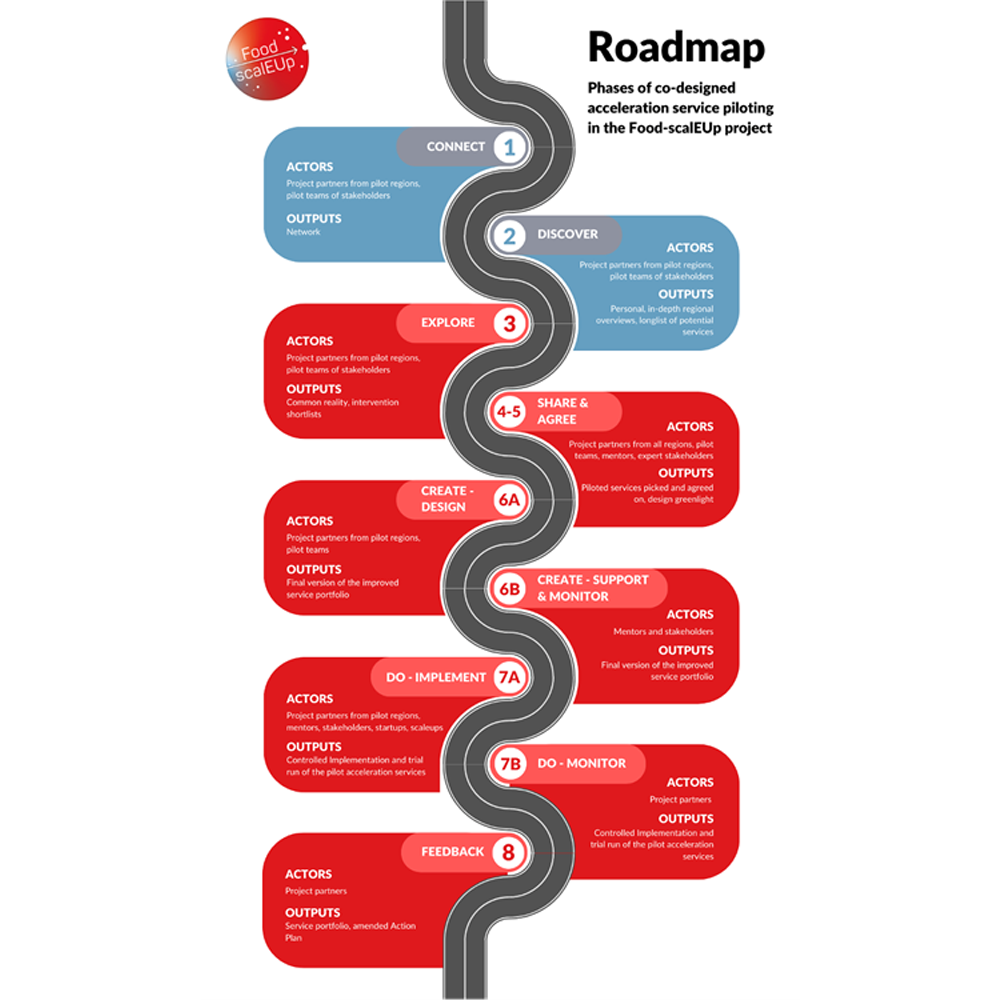Food-scalEUp - The partners of the European Food-scalEUp project enter the next stage in the development of agri-food digital acceleration ecosystems

The partners of the European Food-scalEUp project enter the next stage in the development of agri-food digital acceleration ecosystems
In the context of the development of European innovation ecosystems, the Food- scalEUp project aims at fostering collaboration that boost digital agri-food acceleration programmes and services at regional levels.
Building on the mapping and analysis of the regional agri-food digital acceleration ecosystems, 10 partner organisations (clusters, accelerators, technopoles) are ready to take the next step in the development of agri-food digital acceleration ecosystems.
Validation with peers
During interactive sessions, the trends, needs, and proposed solutions were discussed and validated by a group of peers. This group included acceleration service users, providers, managers and promotors. Not only was this step key in building trust amongst partners, but we also gained valuable insights in the next steps. The challenges the regions face, emerging and leading innovation regions alike, are similar. Whereas the solutions require a custom approach in the local context. Many regions attract tech start-ups seeking to connect to the agri-food ecosystem. Several innovation challenges are experienced across borders, such as the relatively long time to market and the following consequences for the financing of scale-ups.
In the Food-scalEUp program, the partners will work in close collaboration on the improvement of business support services specified to their regions' most current needs. This means that some regions will improve their services on the aforementioned financial support system. Also, to connect regions and strengthen the European food-tech domain as a whole, activities in an ecosystem approach are taken. In this case partners are for example working on the implementation of living labs.
Guideline
To gain an overview on the many possible routes that regions can take and to help regional partners select and prioritize the identified solutions, an action plan is created which acts as a guideline for this purpose by providing regionally specific context. Following the steps as presented in the roadmap below, partners are now exploring options and sharing these with regional actors to reach an agreement on next steps soon.
10 partner organisations (clusters, accelerators, technopoles) of the project are ready to select and develop new and improved acceleration services. This is done in close cooperation with regional partners numbering a total of about 700 actors within the following regions:
- Közép-Dunántúl (Hungary)
- Galicia & Navarra (Spain)
- Normandie, Pays de la Loire, Bretagne, PACA & Auvergne Rhône-Alpes (France)
- Ostwestfalen-Lippe & North Rhine-Westphalia (Germany)
- Gelderland & Noord-Brabant (The Netherlands)
Roadmap
Whereas the focus of the development or improvement of services is on the moderate and emerging regions, many of the challenges on these topics are also experienced in the leading innovator regions. The implementation process is designed as a collaborative effort, for which all partners are expected to provide an equal share